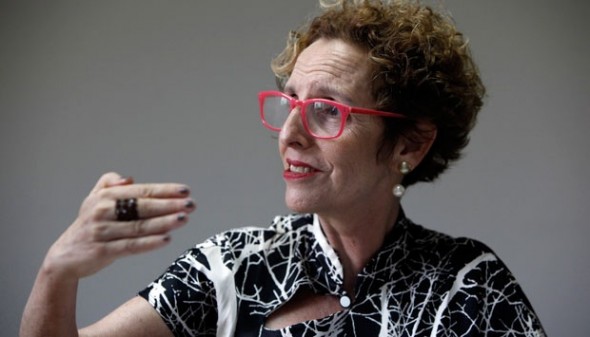June 16, 2013
As the world’s fourth most populous country, Indonesia faces rapid urbanization. According to the World Bank, Indonesia’s urban population is projected to reach 220 million by 2025.
UN Special Rapporteur on adequate housing, Raquel Rolnik, a Sao Paulo-based architect and urban planner with 30 years experience in the field, made her first official visit to Indonesia recently to assess the government’s policies and programs on housing. Prior to the final report which will be presented to the UN Human Right Council in March 2014, Rolnik recommended that the Indonesian government adopt a national housing development strategy to be designed with public participation and disaggregated data on housing situation and needs.
On her last day in Indonesia, Rolnik spoke with Tempo reporter Seulki Lee, Natalia Santi and Ismi Damayanti at Menara Thamrin, to share her two-week observation on Indonesia’s urban and rural housing situation, including differences between Indonesia’s kampung life and the favelas of Brazil. Excerpts:
How do you assess the overall status of the Indonesian people’s right to adequate housing at the moment?
I think there are cases of discrimination and those are important cases. Those who are discriminated against don’t have ID cards and live in a riverbanks and railroads and are considered illegal. Then everything related to the situation also discriminates against them. We heard cases of discrimination against religious communities, in some cases against the LGBT (Lesbian, Gay, Bisexual, and Transgender). Discrimination is very important bridge of human rights and it’s an important measure from the government of Indonesia even if the discrimination is not done by the government but by a third party. In this case the government should prevent and protect people from being discriminated.
The other side of it is the Indonesian tradition of providing services and upgrading existing settlements. Even on the riverbanks like the Pluit reservoir, there is a clean water system being distributed to the people. This is the other side of the story, but in another way it’s where eventually there will be services and facilities like health clinics and schools.
Of course in 13 days, it’s very difficult to have a deep understanding of the local situation. My preliminary assessment, which is the one that I’m presenting today, is that in one side there is commitment from the government on adequate housing.
How did you find the Jakarta’s crowded settlements?
I visited different settlements on riverbanks. Not only in Jakarta, but I also saw the riverside and the riverbanks in Jogjakarta and Surabaya. Riverbanks and railroads have been an alternative, considering the lack of options for many people. It’s not a question of personal choice. It’s a question of means, income, price of land and the place in the city.
People live on riverbanks because there is no available land and housing alternatives for them. This is a very important point because when we address the question of riverbanks and railroads, we cannot only look at the existing situation. We should ask ourselves what is the policy in order to prevent more people from settling in riverbanks. We have people who should leave when the land is needed for some purpose, then its relocation or eviction. If you take the case of Jakarta, only in Ciliwung River would you need to relocate 40,000 people. Also there is one point about riverbanks, which is my concern.
What point is that?
I was told and I have seen in some cases there are some developments on the riverbanks, although some people are regarded as illegal. And there was a photo today in the Jakarta Post on a development on the river by a private market. I’m very concerned with the possible double standard. Who has the right and who has not? If riverbanks are not available for one, they are not available for all.
What are the distinctive things about Indonesia in terms of housing and evictions, compared to your experience in Brazil?
As a matter of fact, in Indonesia, every day, I felt that I was in Brazil but also, that I was not in Brazil. So, there are certain similarities not only on the question of housing but also on evictions. But there is a huge difference. One difference is that I am so impressed with kampung life. This is amazing; the way people cope and organize their lives in such a dense, packed area. How they work and live together in the same space, how much the kampung is a living but also a working place and the strength of the communities to do that. I have never seen anything like that in Brazil in the low income settlements. I see that in Indonesia and this is very special. However, from the planning and land management side, maybe Brazil has some things to teach Indonesia. Third, I appreciate the fact that there is a whole range of housing policies in Indonesia. It’s not one side. You have the Rusunawa rental apartment, slum upgrading, rehabilitation of rural houses, and housing finance. It’s dealing with a whole range of problems which is very good because housing needs a very different approach. Now in Brazil it is much more focused only on new housing which is not very good. Compared with policies in Indonesia, you are in a good position. But having said that, there are many programs, and if you are aware where the money goes, you see that it goes in housing finance. That is the problem.
***
A complete version of this interview is available in the June 16 to 23 edition of Tempo English.
Source: Tempo


Leave a Reply